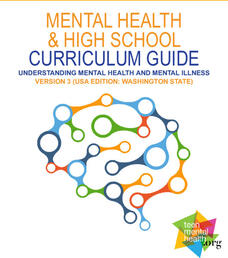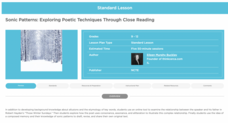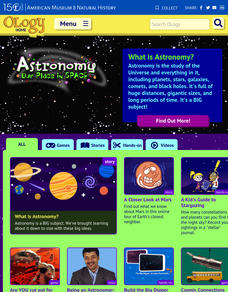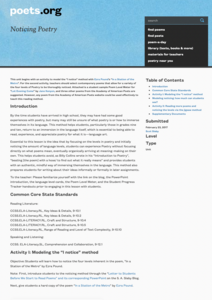University of North Carolina
The Narrative of the Life of Frederick Douglass, an American Slave
After reading excerpts from Frederick Douglass' autobiography, pupils will draw on what they've learned about the cruelty of slavery to write and present an anti-slavery speech or editorial.
University of Minnesota
Ethics of Dissection
There's an elephant in your classroom. That's right — a big, awkward elephant named Dissection. Sure, you'd like to talk about him ... but how? Whether you're a seasoned teacher or fresh out of student teaching, the topic of dissection...
C3 Teachers
Black Women Writers: What Gets Black Women Heard?
Zora Neal Hurston, Toni Morrison, and Maya Angelou are featured in a guided inquiry unit. High schoolers research the lives and works of these and other Black women writers and craft an argument, using evidence from their research, to...
C3 Teachers
2020 Protests: Is There Anything New about the 2020 Protests?
Are marches and protests an effective form of resistance? That is the question high schoolers seek to answer in this inquiry lesson as they compare the 2020 protests to historical ones. Researchers use Venn Diagrams to compare images...
K20 LEARN
OPTIC - A Reading Strategy Recipe: Visual Literacy
A visual literary lesson provides learners with OPTIC (Observations, Predictions, Themes, Inferences, Conclusions), a reading strategy to help them understand and interpret visual and written texts. Scholars practice the strategy with a...
Anti-Defamation League
8 Ideas for Teaching National Hispanic Heritage Month
Here are eight ideas to celebrate National Hispanic Month! Scholars have the opportunity to read and discuss literature, include people and events in history, examine art, watch and discuss films, listen to and dance to music, explore...
Penguin Books
A Teacher's Guide to the Signet Classics Edition of Charles Dickens's Great Expectations
Instructors expect great things from a good teacher's guide, and this one delivers. The 48-page guide to Charles Dickens's Great Expectations provides information about plot developments and new characters and places introduced in each...
Academy of American Poets
Women in Poetry
Imagine linking poetry to technology! Thirty-three lessons comprise a 6-week "Women in Poetry" unit for high schoolers. Class members research women poets, learn how to respond electronically to discussions, write their poems, create web...
Mental Health Literacy
Mental Health and High School Curriculum Guide - Version 3
A 171-page curriculum provides educators with the information they need to help and support high schoolers' mental health. The curriculum targets five domains: learning how to maintain good mental health, learning about mental disorders...
Character Lab
WOOP for Classrooms: Self-Control
Achieving your goals can be as easy as Wish, Outcome, Obstacle, and Plan! Show your class how to turn their personal and academic desires into reality using a time-proven process. The resource focuses on self control and guides users...
ReadWriteThink
Sonic Patterns: Exploring Poetic Techniques Through Close Reading
Robert Hayden's poem "Those Winter Sundays" serves as the anchor text in a five-part instructional activity that takes the mystery out of poetry analysis by modeling explicit strategies for pupils to employ to conduct a close reading of...
K20 LEARN
Airplanes and Airstrips, Part 2
Table the decision to land. Pupils form flight crews by matching up different representations of linear equations. Given a set of coordinates for an airstrip, the crews determine the equation of the line that will position their planes...
American Museum of Natural History
Planetary Mysteries
A website all about planetary mysteries—it's a one-stop-shop for all things, stars, planets, and space travel. Scholars read an astronomy overview to discover the page's big ideas, then choose from the plethora of resources, including...
PBS
Teacher Planning Kits for New School Routines | End of Year
Support your end-of-year instruction with planning kits from PBS. Five planning kits are provided: Special Lessons and Collections; Planning Sheets for Pre-K through 5 and 6-12; Summer Bonus Resources; and Relevant Professional Learning...
Academy of American Poets
Noticing Poetry
Introduce scholars to the "I Notice" method, a different approach to studying poetry. Instructors first model the noticing method by identifying words and images that appeal on the sonic level, the ideational level, the sensory level,...
Flipped Math
Calculus AB/BC - Determining Concavity of Functions over Their Domains
Time to take a second look at derivatives finding concavity. While watching the video, learners find out the definition of concavity. Individuals see how to determine whether an interval is concave up or concave down using graphs and the...
Flipped Math
Calculus AB/BC - Derivatives of tan(x), cot(x), sec(x), and csc(x)
Continue to differentiate the rest of the trigonometric functions. Pupils see the derivatives of the other four trigonometric functions and begin to memorize the rules. Learners see examples that show that the calculus portion of a...
Flipped Math
Calculus AB/BC - The Quotient Rule
Some differentiation rules are just better to memorize. The ninth lesson in a unit of 11 presents the quotient rule to pupils for them to memorize. Learners use the quotient rule to determine the derivative of two quotients after seeing...
Flipped Math
Calculus AB/BC - The Product Rule
There's more to derivatives of multiplication than simply the product of the derivatives. A helpful video gives learners the product rule of finding the derivative of the product of two functions. Pupils find the derivatives of functions...
Flipped Math
Calculus AB/BC - Derivatives of cos(x), sin(x), e^x, and ln(x)
The shortcuts are not just for polynomial functions. Pupils learn the derivatives of the two basic trigonometric functions, cosine and sine. The video provides the derivatives for exponential and logarithmic functions. Learners work...
Flipped Math
Calculus AB/BC - Derivative Rules: Constant, Sum, Difference, and Constant Multiple
Use derivatives to find equations of lines. Pupils learn more rules to use as shortcuts to find derivatives. Using the rules, they find the equations of the tangent line and the normal line at a given point. Scholars then apply the new...
Flipped Math
Calculus AB/BC - The Power Rule
There has to be a quicker way. Pupils learn the power rule that allows for a shortcut to take the derivative of terms to a power. Using the newly found rule, scholars find the slope of the tangent line to a function at a given x value....
Flipped Math
Calculus AB/BC - Connecting Differentiability and Continuity
Despite what you thought, you can differentiate between continuity and differentiability. Using a short lesson, pupils learn how differentiability and continuity relate to each other. It provides three descriptions of when a function is...
Flipped Math
Calculus AB/BC - Estimating Derivatives of a Function at a Point
It seems like it should be about three. Pupils learn to get an estimate of the derivative of a function at a point by using the derivative functionality of their graphing calculators. They take that information to determine the equation...

























